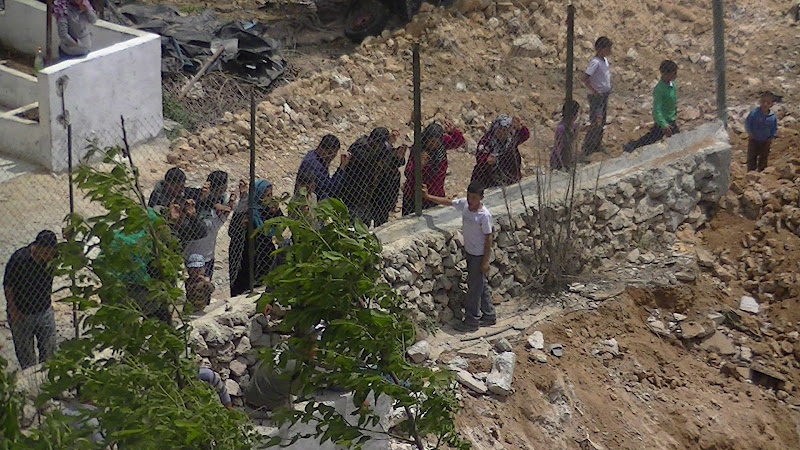Year: 2012
-
A letter from Khader Adnan: “Their fate is in our hands”
by Khader Adnan 30 April 2012 | Popular Struggle Coordination Committee In the name of Allah, Most Compassionate, Most Merciful, Praise be to Allah, and peace and blessings be upon the Messenger of Allah. Dear free people of the world. Dear oppressed and disenfranchised around the globe. Dear friends of our people, who stood with…
-
Another water cistern demolished, another violation of Human Rights
by Joseph 3 May 2012 | International Solidarity Movement, West Bank On Wednesday 2nd May 2012, in the town of Al-Baqr, the Israeli occupation forces destroyed yet another water cistern. The water cistern measuring 16 metres in width and length, and 8 metres in height was used to irrigate approximately 40 to 50 dunams of…
-
Video: Flag woman confronts Israeli military at prisoner solidarity demonstration at Ofer
by Jessica Mansour 1 May 2012 | International Solidarity Movement, West Bank 4 people were injured today at a peaceful rally held near the Ofer military prison, in solidarity with hunger striking Palestinians within Israel’s Occupation prisons. Injuries sustained were caused by rubber coated steel bullets, along with tear gas canisters, skunk water, and pepper…

